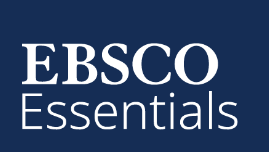A Study on the Results of Practical Training for Nursing Techniques Knowledge Self-Learning Box Set
Keywords:
learning practice, nursing techniques, knowledge self-learning box setAbstract
The objectives of this study are: 1) to compare the learning outcomes of technical subject training; Nursing obtained from using knowledge sets in teaching and learning during the COVID-19 situation and in normal conditions and 2) to study student satisfaction in using the Self learner box set in the subject practice course. Nursing techniques, step 1: organize a self learner box set of knowledge by analyzing needs literature review related. The population is second year students in the Faculty of Nursing. Prince of Songkla University Pattani Campus. Practice of Nursing Techniques is for the academic year 2021, 2022 and 2023. The sample comprised of 180 people, derived from purposive sampling. The implementation was the Quasi-Experimental Research (QASI-Experimental Research). Three research groups were selected as experimental and control groups. The three groups were expected to be the same or similar. Comparison was made among the students who did not use the knowledge set, and who used the online learning set, and who used the onsite learning set. Non-randomized contribution test was roll group pretest posttest design. The research tool was to measure
satisfaction using knowledge sets, analyzing statistical data, and analyze data using t-test independent samples, frequency and percentage in terms of difference score.
The results of the study found that 1) the achievement of learning in the practical course in nursing techniques on the use of the knowledge set in organizing the teaching and learning of students, it was found that the group that did not use the knowledge kit had an average score of 32.70 points. The students who did use the knowledge kit shared knowledge in online learning had an average score of 35.85 points, and the group that used knowledge sets in the onsite format had an average score of 35.14 points. 2) Satisfaction of users of the knowledge set assesses variance. The process of learning nursing techniques through the knowledge set self learner box set, which includes a set of ready-made learning equipment. It is convenient to carry in online learning. Able to engage in teaching review before and after class. Satisfed with overall consistency of the innovation. Suitability for the purpose of actual use 87.00 percent.
Overall, it is consistent with the course and is convenient. to use and maintenance, therefore using the innovative Self learner box set as a component in learning management. Teaching practical courses in nursing techniques during the COVID-19 situation and normal conditions, teaching is considered benefcial to the study of the subject. which can be trained and reviewed to have professional expertise further.
References
Arttanuchit, S & Nithi-Uthai, B. (2022). Patent No G09B 23/28. Bun Desrepublk.
Fakcharoenphol, W., Chaowattanakul, K., Warasunan, P., Nukuntham, L.,Laohamenee, Sineenuch Suwannaphichat, K. & Suwan, S. (2020). Readiness for learning management, online teaching under the Covid-19 outbreak situation. Educational Journalism and Human Development, 4(1), 44-61.
Jeffries, P. R. & Roger, K. U. (2007). Theoretical framework for simulation design. In P.R. Jeffries (Eds), Simulation in nursing education: From conceptualization to evaluation (pp. 21-33). Nation League of Nursing.
Penratanahiran, R. & Tanthong, A. (2022). Impacts and coping strategies in online learning of students under the COVID-19 epidemic situation. Journal of Modern Learning Development, 7(4), 208-233.
Podaphol, C. (2020). Online learning management: educational methods. http://slc.mbu.ac.th/article/28181
Suwankiri, W. (2016). Learning management using simulation situations for nursing students. Nursing Journal Chulalongkorn University, 28(2), 1-14.
Downloads
Published
Issue
Section
License

This work is licensed under a Creative Commons Attribution-NoDerivatives 4.0 International License.





